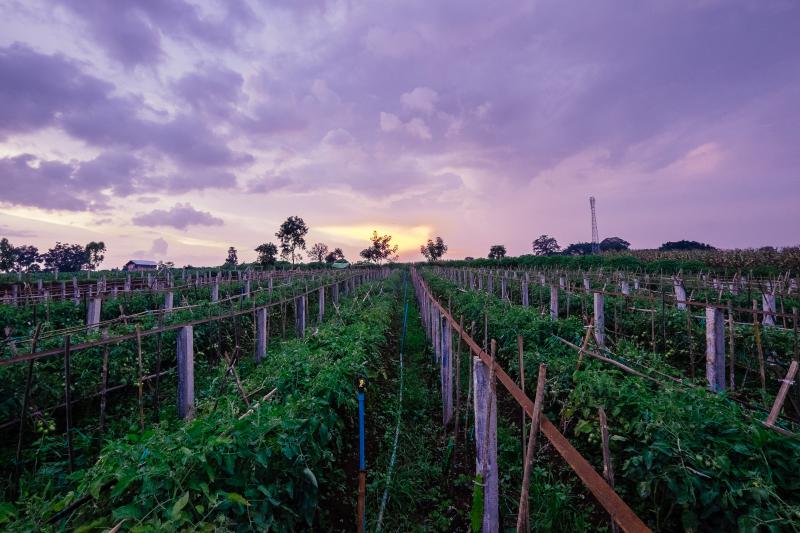In Myanmar, organic farming is gaining ground. While most farmers are still used to working with pesticides, thousands have already changed their methods. This happened for different reasons. For example, in 2015/16, 1300 farmers including 440 women had been involved in a training program in Pyn Oo Lwin (Mandalay Division). International donors like the Nordic Development Fund had initiated the project as on the long run and in the context of food security, organic farming is a tool to countering climate change, poverty and gender inequality.
Other farmers in Myanmar have changed from traditional to organic farming methods on their own. One of them was U Zaw Cho who started his green business in 2012. His daughter-in-law Ma Kye Mon Lwin continued his work. Now, she is marketing her products like salad or red Dragon fruits not only in the Yangon area, where her farm is located, but also on facebook. As other farmers and basicly all people in Myanmar, she predominantly uses this social media platform.

So, despite some great losses due to Covid-19 across Myanmar’s economic sectors, organic farmer Ma Kye Mon Lwin could successfully expand her business. According to the Myanmar Times (24.7.2020), she succeeded by collaborating with restaurant owners and chefs from Inle Lake, one of Myanmar’s a top tourist destinations. Together, the partners created new products based on organically grown vegetables.
Agriculture makes up one third of Myanmar’s Gross Domestic Product (GDP). To put it in relation: In a country like France, the quota is about 1.4 % (2018).
As the Food and Agriculture Organization of the United Nations (FAO) noted, „agriculture is the backbone of Myanmar’s economy, and women are the backbone of agriculture“. In a short report of 2016, the FAO summarized the situation of Burmese female farmers, describing it on the one hand as full of injustices, on the other hand as full of opportunities. In 2020, this has not changed significantly.
Still, the story of Ma Kye Mon Lwin’s entrepreneurship is not representative for Myanmar’s farming women. From her point of view, however, her experiences could serve as an “encouraging example for other villagers to follow her path”, putting the country’s food security into an innovative perspective. CMM
